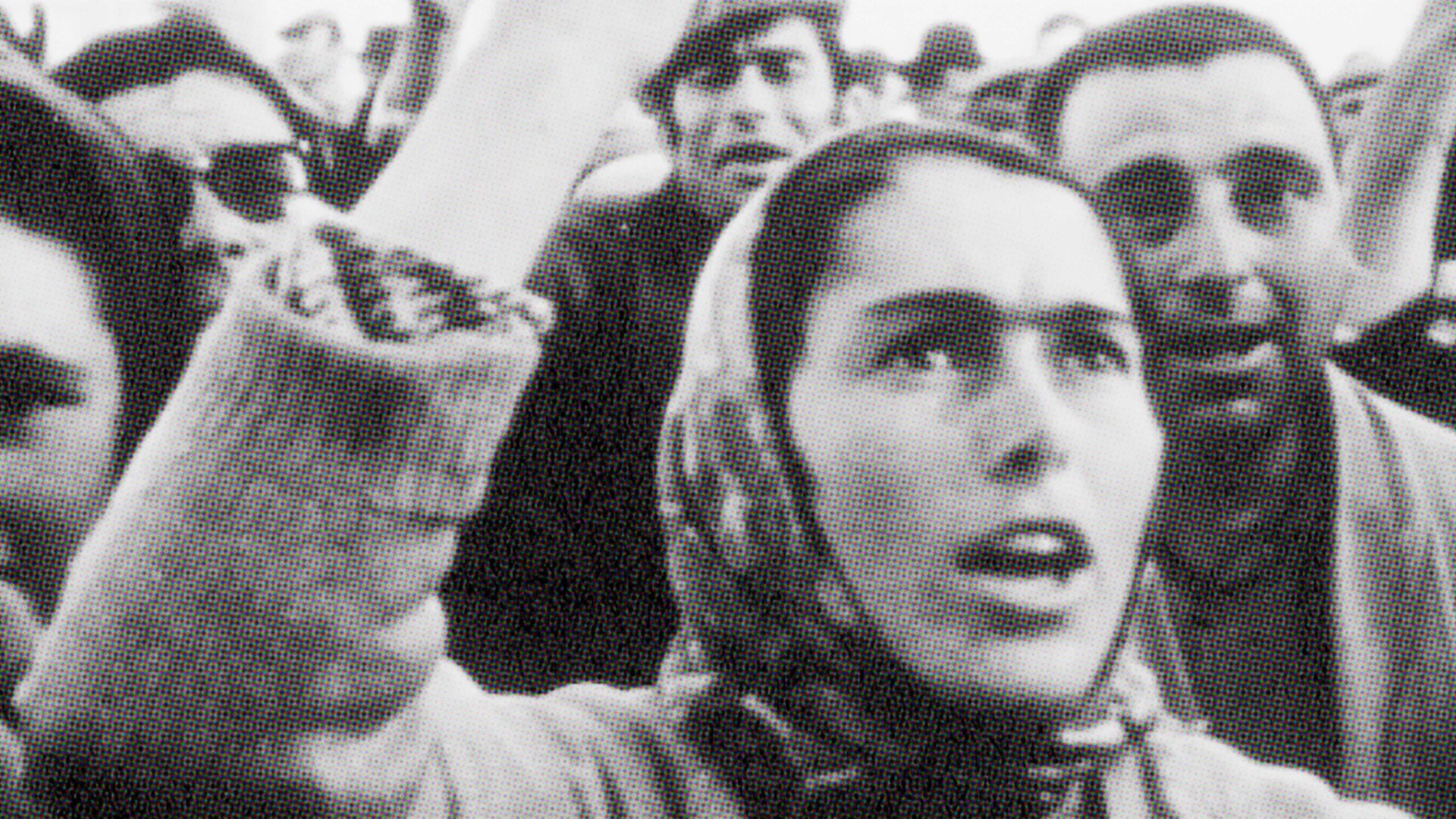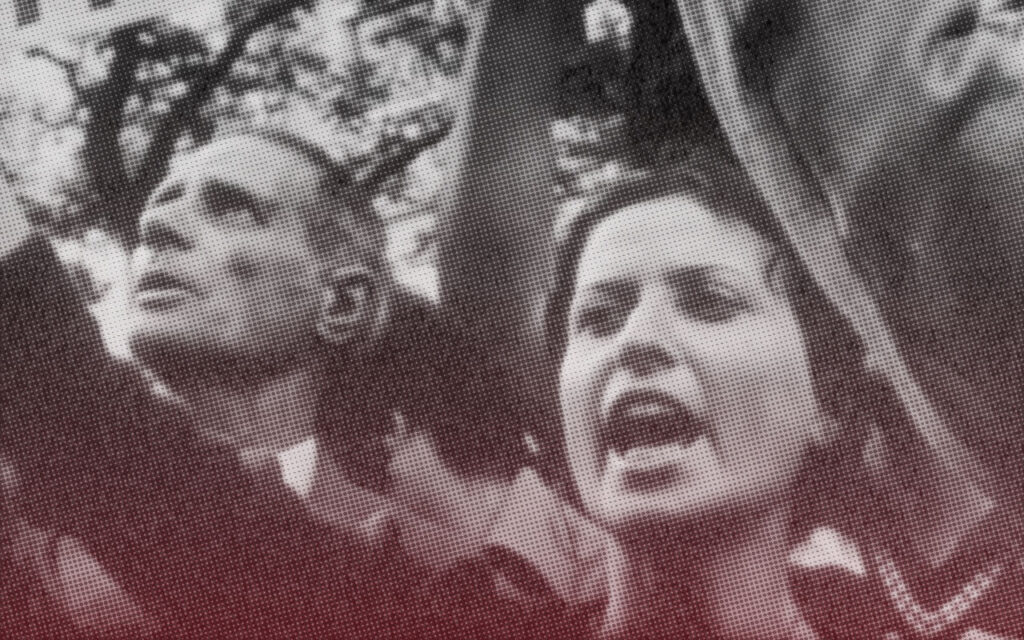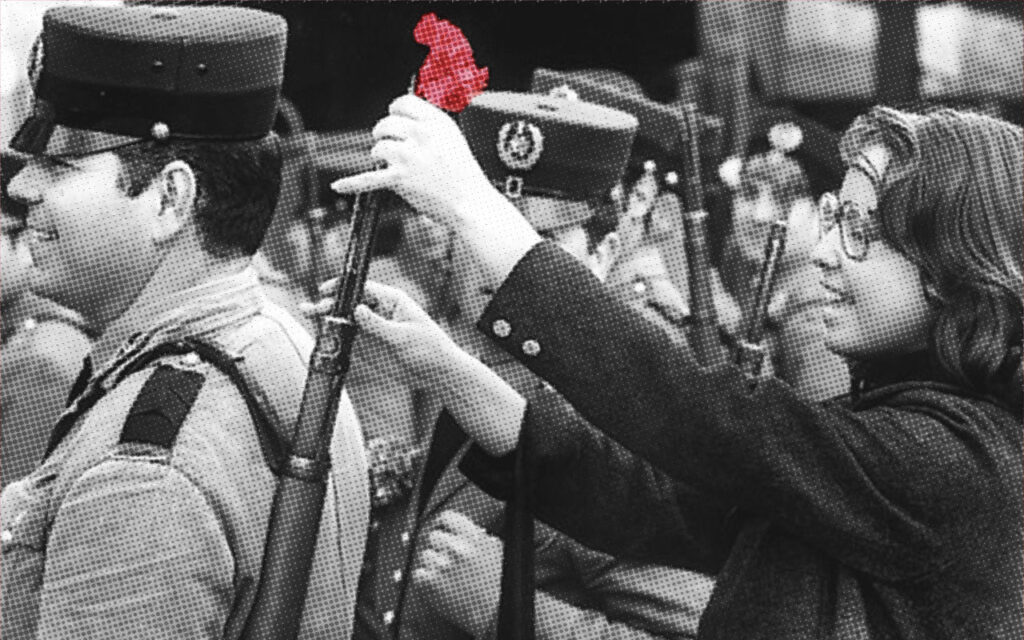Here is content that uses cookies. To view them, you must accept them in the Cookies config
Here is content that uses cookies. To view them, you must accept them in the Cookies config

What is a revolution for? A revolution highlights other possibilities for life.
That is the premise on which this short film is based. It delves into the history and the colonial roots of one of the last great European revolutions that started on 25 April 1974 in Portugal and reflects on its end on 25 November 1975.
What can we learn from that 19-month period and from its so-called ‘Revolutionary Process in Progress’? What images does this popular revolution that began as a military coup d’état leave us with?
This audiovisual essay, constructed with some of the most important cinematographic works on the 25 April, including archive material from television and the film cooperatives that emerged in the heat of the revolutionary process, is a reflection on the political force of images, on the legacy they leave us, and on the role of archives, film, the media and representation in general in our contemporary struggles.
The revolution (is) probable also speaks to us of the fragile document status of images as “proof” and about the real possibility of learning from history from the present.

2022 / 30 mins / Video HD and 16mm. transferred
Script and direction: Lee Douglas, María Ruido y Paula Barreiro López
Image editing and post-production: Enrique Piñuel / Playtime Audiovisuales
Cinematography: Paulo Catrica
Camera assistant: Lee Douglas
Music:
Grândola Vila Morena (1971) by José Afonso
The Revolution Will Not Be Televised (1971) by Gil Scott-Heron
Liberdade (1974) by Sérgio Godinho
Sound post-production: Ricardo Guerreiro
With extracts of the films:
Bom Povo Português (1980) by Rui Simões (production Rui Simões and Cooperativa Virver)
Deus, Patria, Autoridade (1975) by Rui Simões
Nascer, Viver, Morrer em Paradinha, Moimento da Beira (1975) by José Nascimento and Cinequipa
Caminhos da Liberdade (1975) by Cinequipa
A Luta do Povo: Alfabetização em Santa Catarina (1976) by Grupo Zero and coordinated by Solveig Nordlund
Gestos e Fragmentos (1982) by Alberto Seixas Santos
A Lei de Terra (1977) by Alberto Seixas Santos, Solveig Nordlund and Grupo Zero
A Linha Vermelha (2011) by José Filipe Costa (with excerpts of Torre Bela (1975) by Thomas Harlan)
Entrevista a Agustín García Calvo e Isabel Escudero en la Puerta del Sol (2011) by La Noche Tuerta
Subtitles: Enrique Piñuel and Eloïse Mahieux
Traductions of the subtitles (subtitles in Spanish, Portuguese, English and French): Filipa Falcato, Lee Douglas and Clara Padovani.
Production: Research project “Modernidad(es) Descentralizada(s): arte, política y contracultura en el eje transatlántico durante la Guerra Fría (Parte 2)” (HAR2017-82755-P)
This film is part of a project that has received funding from the European Union’s Horizon 2020 research and innovation program under the Marie-Slowdowska-Curie grant agreement No 895197, which supports the project “Militant Imaginaries, Colonial Memories: The Visual and Material Traces of Revolution and Return in Contemporary Portugal”, and
Résistance(s) Partisane(s): Culture visuelle, imaginaires collectifs et mémoire révolutionnaire/Partisan Resistance(s): Visual culture, collective imagination and revolutionary memory” (Initiative d’excellence de l’Université Grenoble Alpes, ANR-15-IDEX-02).
paula.barreiro-lopez@univ-tlse2.fr
Laboratoire FRAMESPA
Université de Toulouse 2 Jean Jaurès
Toulouse (France)
Visual artist, filmmaker, researcher and teacher at the Image Department of the University of Barcelona (Spain)
Institute of Contemporary History (IHC) Universidade Nova de Lisboa
Lisboa (Portugal)
